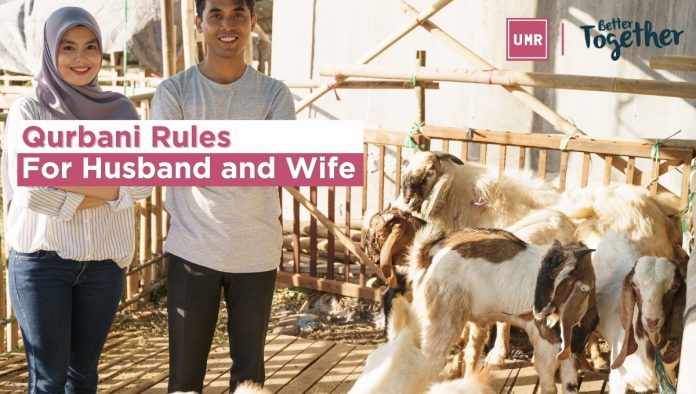
Qurbani is a valued act of devotion and is required for every sane adult Muslim who has wealth in excess of their requirements. For the animal to be considered a Qurbani, however, a number of requirements and restrictions must be followed.
Qurbanis must be conducted within three or four days of the 10th of Dhul Hijjah. Animals used for Qurbani must be in good health, free from sickness, and slaughtered under specific guidelines.
Also, there are some Qurbani rules for family especially husband and wife. We will explore them in this blog.
General Requirements for Qurbani
Qurbani is an important religious practice for those who are financially capable. The following are general guidelines for Qurbani that apply to any Muslims:
Intention: Qurbani should only be performed with the goal of pleasing Allah. And also fulfilling a religious obligation.
Financial Capability: Both spouses must have enough money to do Qurbani. Financial capacity standards vary by location and custom.
Eligible Animals: The most common animals used for Qurbani are cattle (such as cows or bulls), sheep, and goats. These animals must meet certain age and health criteria.
Time of Sacrifice: Qurbani is performed after the Eid prayer on the 10th, 11th, and 12th days of Dhul Hijjah. It is preferable to perform the sacrifice as early as possible during these days.
Distribution of Meat: The meat from the sacrificed animal is divided into three equal parts –
- One for the person performing the sacrifice,
- One for family and friends, and
- One for the less fortunate and needy.
The Qurbani husband and wife wish to do should follow these requirements. Also consult with an expert Islamic scholar for more accuracy.
What Are The Qurbani Rules For a Husband and Wife?
If a husband and wife are sane Muslims with wealth that exceeds their Nisab, they should do at least one Qurbani each. Nisab is the least amount that a Muslim must have for paying Zakat. It is same for Qurbani. The Nisab level at this time is 612.36 grams of silver or 87.48 grams of gold.
If the wife has her own money, the husband does not have to pay a share for Qurbani on her behalf. Although he is free to do so if he so chooses.
Only when the animal is large enough for them to each donate their obligatory share, may a husband and wife perform a combined qurbani.
Lastly
If the husband and wife Qurbani’s intentions are solid, they can choose to perform separate sacrifices individually or jointly. The intention and fulfillment of the obligation remain the same. Qurbani rules for husband and wife is not that different.
Still, it is advisable to consult knowledgeable scholars or local Islamic authorities for guidance specific to your situation and to ensure that all the requirements and recommendations are being met for Qurbani.







